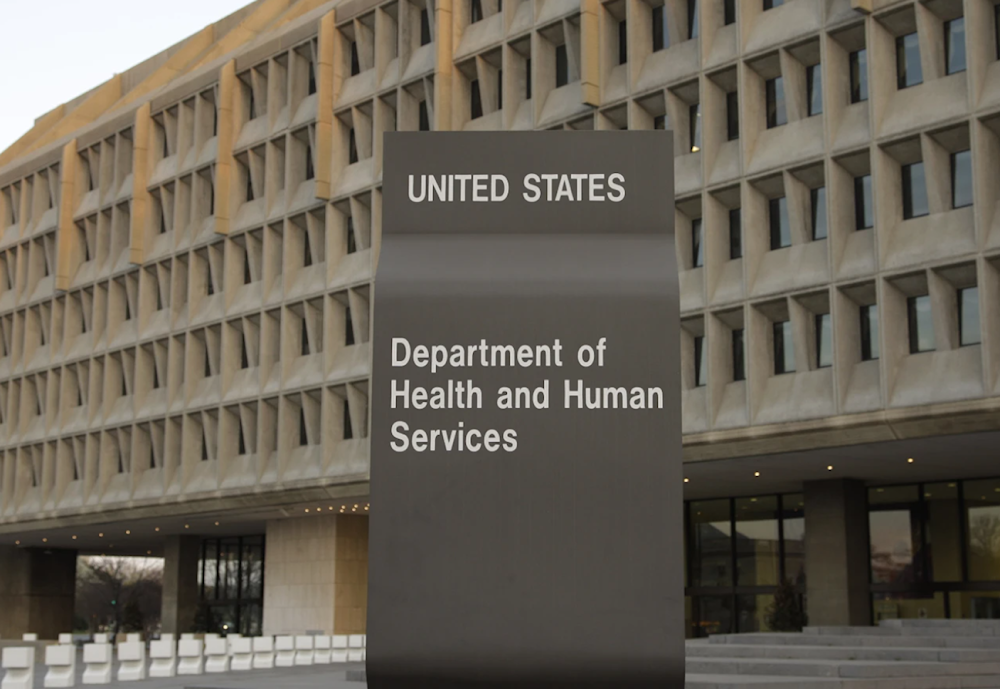RFK Jr plans 10,000 job cuts in restructuring of US Health Department
Kennedy stated that the department would also shutdown half of its regional offices and establish a new agency named the "Administration for a Healthy America," or AHA.
-

The Department of Health and Human Services building is seen in Washington on April 5, 2009. (AP)
Robert F. Kennedy Jr. announced the nation's health agencies would lose 10,000 positions from their 82,000-person staff, a massive decrease that the US health secretary described as reducing federal bureaucracy despite internal opposition to the administration's goal.
The layoffs announced on Thursday, along with earlier restructuring and voluntary buyouts, mean that the Department of Health and Human Services (HHS) would lose around 20,000 employees.
After being appointed to Trump's transitional government as the secretary of the United States' top health agency, RFK Jr. expressed his gratitude and ambitiously pledged to "end the chronic disease epidemic" and "Make America Healthy Again."
Kennedy stated that the department will also shut half of its regional offices and establish a new agency named the "Administration for a Healthy America," or AHA.
“We aren’t just reducing bureaucratic sprawl. We are realigning the organization with its core mission and our new priorities in reversing the chronic disease epidemic,” he revealed Thursday.
Downsizing government
HHS is one of the largest parts of the federal government, with a $1.7 trillion budget and well-known agencies. HHS oversees many organizations, including the Centers for Disease Control and Prevention (CDC), the National Institutes of Health (NIH), the Centers for Medicare and Medicaid Services (CMS), and the Food and Drug Administration.
The CDC protects Americans from outbreaks and infectious diseases, the NIH leads the world's largest publicly funded biomedical and behavioral research agency, the CMS provides health insurance to 137 million Americans through the public programs Medicare and Medicaid, and the FDA approves and regulates the nation's medical devices, drugs, and foods.
Donald Trump and billionaire Elon Musk have been dismantling federal agencies as part of a broader initiative to reduce the size of the federal bureaucracy, with significant cuts affecting health agencies in particular.
"Any cut you make to a health agency should be done with incredible care and consideration for the hundreds of millions of Americans who rely on their work to stay healthy and get treatment when they're sick," said Chiquita Brooks-LaSure, a former CMS administrator under the Biden administration and now a senior fellow at the Century Foundation. Brooks-LaSure argued that "wrecking ball" tactics, such as layoffs, do not advance the cause.
In his statement, Kennedy also referred to internal opposition to the upheaval at HHS, saying, "In one case, defiant bureaucrats impeded the secretary's office from accessing the closely guarded databases that might reveal the dangers of certain drugs and medical interventions." He did not describe the databases or medical treatments at issue.
According to HHS, the reduction will result in the elimination of 3,500 full-time FDA staff. The government stated that the reduction will not affect inspectors, medication, medical device, or food reviewers. The Administration for Strategic Preparedness and Response will be integrated into the CDC, resulting in a 2,400 workforce reduction. The NIH will lose another 1,200 staff from its 27 institutes and centers. CMS will lose 300 employees.
The reform will condense the department's 28 branches into 15 new sections, including the new AHA. The AHA would consolidate departments at HHS that deal with addiction, mental health, dangerous chemicals, and workplace safety, among other things, under a single central office, the agency announced.
HHS said the new organizations will also concentrate duties, including foreign relations, human resources, and information technology.
The significant restructuring occurs while research funding is in jeopardy. Since Trump took office, the NIH has terminated over 400 current grants, citing diversity, equity, and inclusion, transgender concerns, South African research, and now COVID-19 as candidates for budget cuts. The Office of Long Covid Research and Practice stated this week that it will close as part of the restructuring.
According to a story published in Nature on Wednesday, federal employees who handle the government's research expenditures with academics were told to cancel Covid-19 research awards, which might total $850 million and include more than 600 projects. Funding freezes at the same organization have disrupted essential research on diseases ranging from pediatric cancer to Alzheimer's disease.

 4 Min Read
4 Min Read








